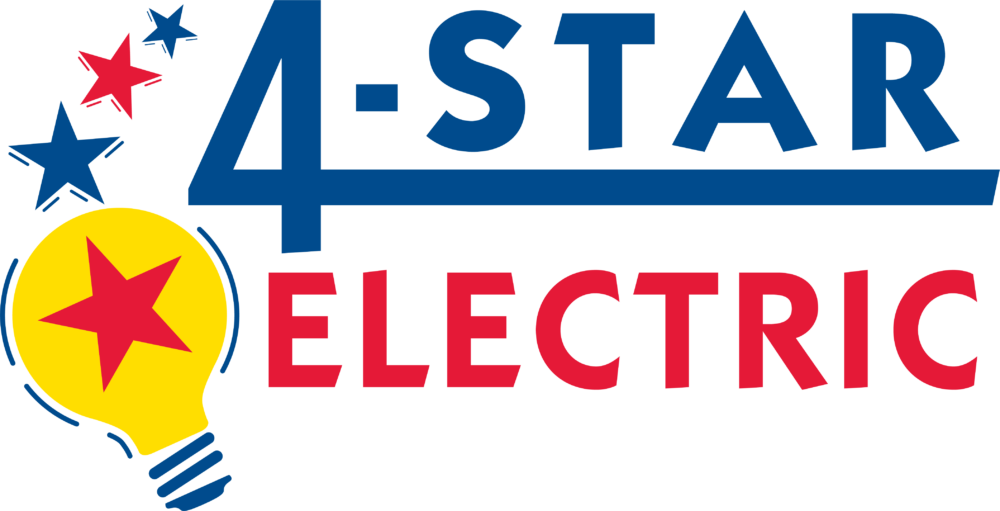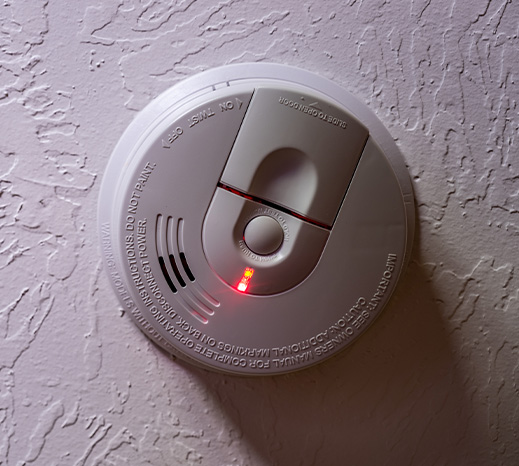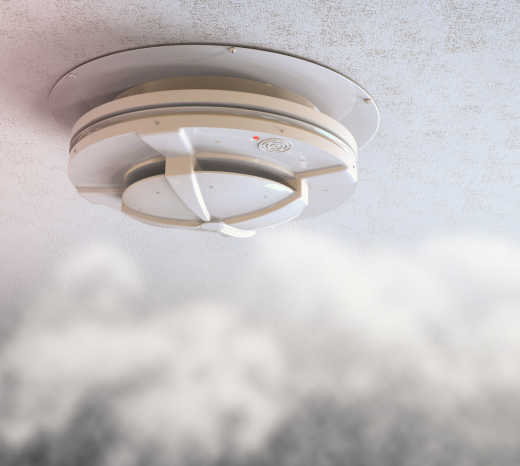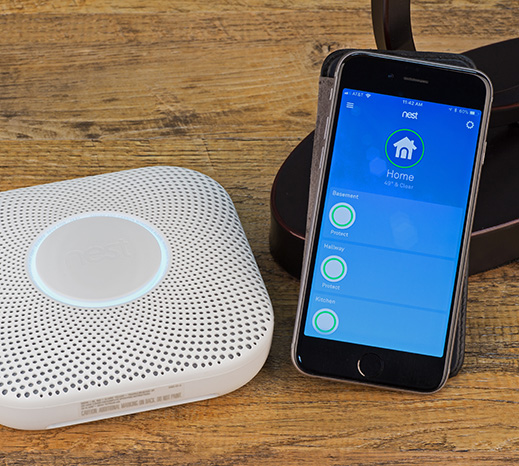Everyone knows that properly installed smoke detectors save lives.
A loud alarm is triggered when it senses smoke, alerting you and your family to get to safety. But if those beeps are constant, even when there isn’t any danger, they quickly go from helpful to frustrating.
Before you take down and try to disassemble your smoke detector like Phoebe on Friends, read on to find out what those beeps could be trying to tell you.
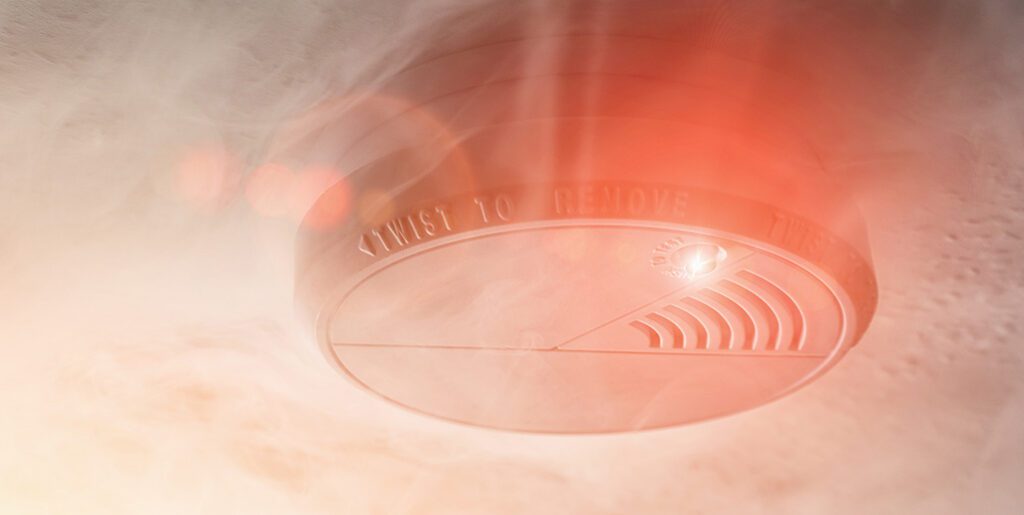
Smoke Detectors 101
Before we jump into why your smoke detector is beeping, it might be helpful to go over the different types of smoke detectors, so you can tell what kind you have in your home.
Ionization Smoke Detectors
Ionization smoke detectors are found in the majority of homes today. This type of smoke detector uses ionized particles to detect smoke in the air.
Photoelectric Smoke Detectors
This type of smoke detector uses a light sensor instead of particles to detect smoke. Once the smoke enters the device, it blocks the alarm’s light sensors, triggering it.
Both types of smoke detectors can be battery-powered, hardwired, or both, which we’ll get into with more details below.
For more information on the different types of smoke detectors, click here.
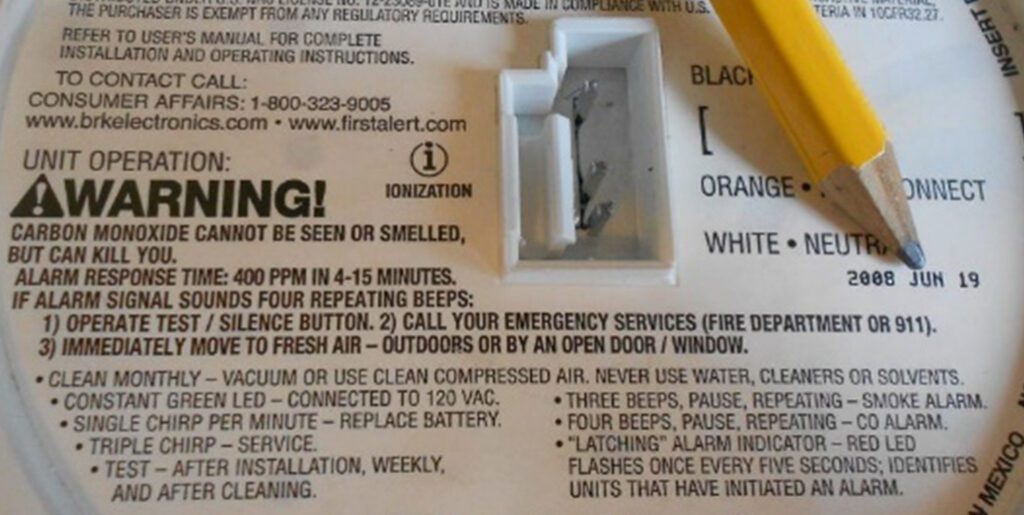
Why Do Smoke Detectors Beep?
A well-functioning smoke detector will only beep when it senses a key indicator of a fire—smoke. But if your unit is beeping all the time, don’t ignore it. It is trying to tell you something!
Low or Dead Battery?
The majority of smoke detectors on the market are battery-powered. This means the most common cause of a beeping smoke detector is a low battery. Many smoke alarms are programmed to chirp every 30-60 seconds when a battery needs to be replaced.
This is good news since it’s a super easy fix! To avoid those annoying beeps, start testing your smoke detector’s batteries monthly. Replace the batteries twice a year to keep your unit’s energy up.
Is My Smoke Detector Expired?
Did you know that smoke detectors have an expiration date? While not as quick as that cheese you forgot about in your fridge, smoke detectors are only valid for 10 years from their manufacturing date, and some only last 5!
Your safety depends on a reliable detector, but so does your insurance company. If your home does experience fire damage, your insurance company will investigate the age and performance of your smoke detectors. Expired smoke alarms could complicate your claim and can possibly negate your insurance policy.
So how do you know if yours is expired? First, check along the edge of your smoke detector; there should be a sticker indicating the expiry date. If yours doesn’t have an outer edge sticker, flip it over and remove the bottom plate. Inside should be the date that the unit was manufactured.
Is My Smoke Detector Malfunctioning?
Smoke detector malfunctions can be caused by everything from manufacturer defects to hypersensitivity to the placement of the units within your home.
External factors such as wind or steam can confuse the sensors in your detector and cause false alarms. And if your smoke detector is too close to the kitchen, simply making toast for breakfast can possibly trigger the alarm.
What About Electrical Problems?
In addition to battery power, smoke detectors can be hard-wired to your home’s electrical system.
If your hardwired detector begins to beep constantly, call an electrician to see if there’s a problem with your home’s wiring. Some of the most common issues include power surges or blown fuses.
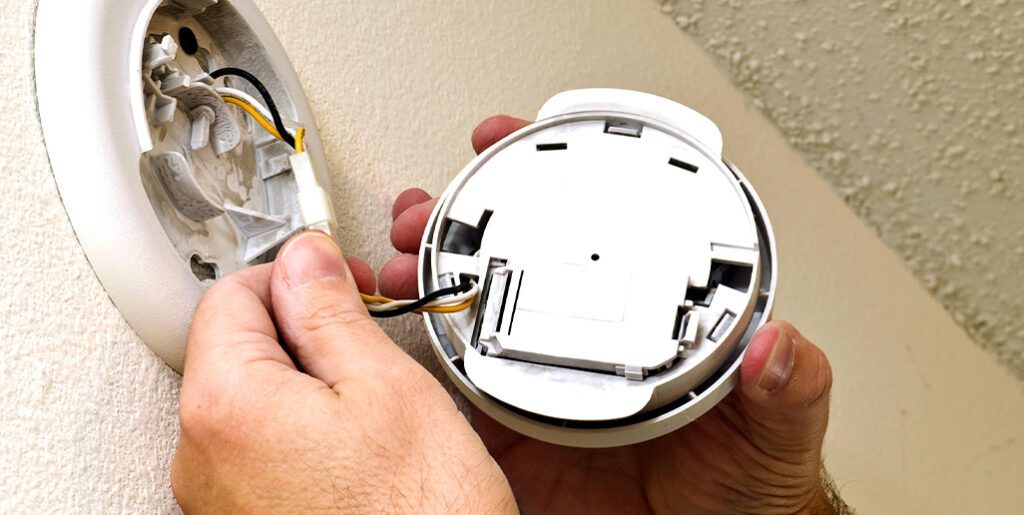
Hardwired vs. Battery—Does It Really Matter?
You may think, “as long as my smoke detector is functioning properly, does it really matter if it’s hardwired or battery powered?” The answer is yes!
What’s the Difference?
A hardwired smoke detector is connected to your home’s electrical system. While they still use batteries during a power outage, their primary power source is your home’s electrical panel.
Hardwiring your smoke detector increases the chance of your unit having power at all times and alerting you to danger. Battery-only detectors are useless if the battery is dead or close to dying. Connecting both sources of power acts as an increased safety system.
Increased Communication
Hardwired smoke detectors can also communicate with one another through your home’s electrical system. These are called interconnected smoke detectors.
In an interconnected system, if one detector goes off, it will trigger all the other alarms in the home to start beeping. Interconnected detectors are more likely to alert occupants of a fire anywhere in the building.
This is especially important in large homes or apartment buildings, where residents may not hear a smoke detector beeping in distant parts of the building.
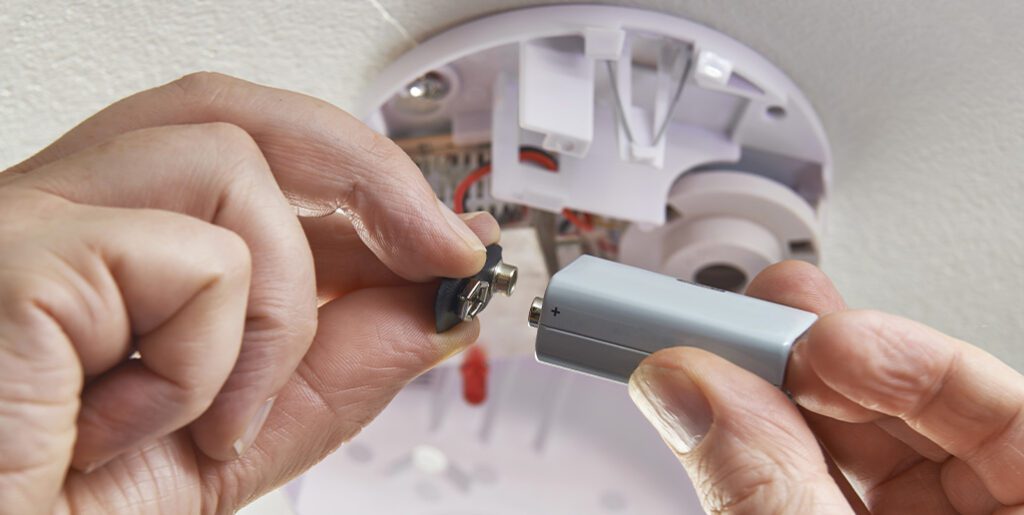
Is It Time to Replace My Smoke Detector?
Even with routine maintenance, reputable smoke detectors have a 10-year maximum life expectancy and must be replaced for insurance and safety purposes. When there is no fire threat, beeping alarms are one obvious sign your smoke detector needs to be addressed.
Battery-powered detectors are easy to replace on your own. They can be found at all major home improvement stores. When deciding which one to buy, it’s important to read user reviews and carefully look at the expiry date while you’re in the store. Target smoke alarms that were manufactured most recently.
It’s best to contact a trained electrician to hardwire your smoke detectors. This may even be required by your insurance company. Homeowners can hardwire their smoke detectors, but make sure to cut power to the circuit, get the necessary permits, and follow safety guidelines.
Fire Safety First
Smoke detectors are a crucial component of home safety and deserve to be tested and maintained. If your smoke alarm is always beeping, it's because something is wrong. Don’t ignore sustained beeps, and just remove your smoke detector.
If you have questions about smoke detector maintenance or replacement, or just want to make sure everything is up to snuff, sign up for the 4-Star Electric Home Protection Plan.
Our membership plan is designed to give you peace of mind and reliable electrical services all year round. Members enjoy the privilege of on-demand experts with the knowledge and experience to keep your electrical system, including your smoke detectors, working at their very best.
